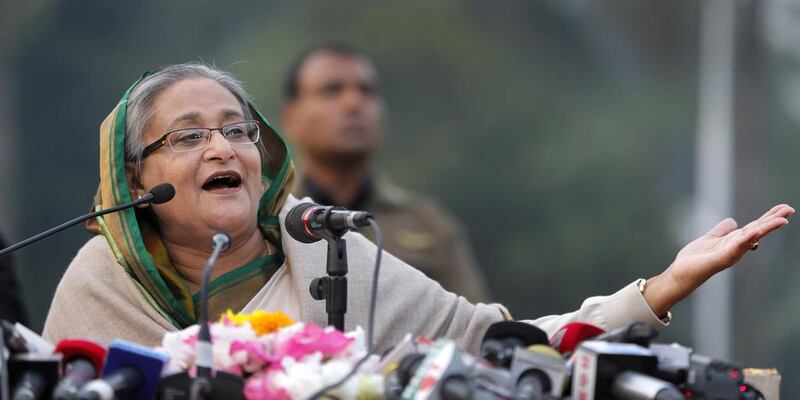Bangladesh is the third most-populous Muslim-majority nation in the world. It is also a secular democracy. Religious minorities, who make up less than 10 per cent of the population, have frequently occupied top positions in the judiciary and the country is led by a woman.
Yet for all its accomplishments, Bangladesh continues to be treated badly by much of the rest of the world. Ever since Henry Kissinger branded it a “basket case” in the aftermath of its independence from Pakistan in 1971, Bangladesh’s reputation beyond South Asia has rarely borne any relation to its complex social reality. The haste with which Bangladesh has been linked over the last few weeks with ISIL demonstrates this yet again.
On September 28, an Italian aid worker was shot dead in the diplomatic quarter of Bangladesh’s capital, Dhaka. Four days later, an agriculturalist from Japan was killed in the north. The responsibility for both crimes, according to one intelligence group, was claimed by an ISIL offshoot. Investigators in Bangladesh, however, categorically denied finding any evidence of a nexus between the killings and ISIL. Sheikh Hasina, the prime minister, went a step further and stated that the group had no presence at all in Bangladesh.
A more plausible explanation is that the two foreign aid workers became casualties of Bangladesh’s political turmoil.
The crisis became intractable when the opposition decided to boycott last year’s general election. Their walkout was prompted by Sheikh Hasina’s refusal to transfer power to a caretaker administration. Despite their withdrawal, the polls went ahead. Unsurprisingly, the ruling Awami League party won in a landslide. However, the election was the most violent in the nation’s history. Eighteen people were killed as the opposition showed up on election day to deter people from exercising their franchise.
Since January, Bangladesh has been rocked by street protests. Religion has been misappropriated to mobilise mobs. The economy has suffered severe setbacks. This year, the global credit rating agency Moody’s downgraded Bangladesh’s rating and forecast weak economic growth for the first time in years.
“Protracted political tensions,” Moody’s warned, were “distracting the government from its economic reform programme.”
The countrywide blockades launched by the opposition have cost the garment industry, which accounts for 84 per cent of Bangladesh’s exports, nearly $4 billion (Dh14.7bn) since January.
Despite significant reversals in Bangladesh’s fortunes, Sheikh Hasina remains popular. A survey published last month by the non-partisan International Republican Institute shows that 66 per cent of Bangladeshis approve of her government.
Some elements of the opposition appear to have concluded the only way to unseat Sheikh Hasina is to plunge the country into instability. And what better way to generate headlines than to link ISIL with Bangladesh?
The results are already apparent: the Australian cricket team have cancelled their tour, embassies have warned their staff to avoid public gatherings, foreign ministries have issued travel alerts, and Bangladesh has become coupled in countless minds across the world with the most nihilistic cult on Earth.
If the economy continues to falter, the population now supporting Sheikh Hasina will demand changes. The beneficiaries will be her rivals.
There is of course virtually no evidence to substantiate the claim that Bangladeshis are succumbing to the homicidal lure of ISIL. Although there are extremists in Bangladesh’s opposition, their ambitions have so far been limited to their own territory. Recruitment drives for ISIL by British jihadis have yielded only failure in Bangladesh. Not a single incident of global terrorism has ever been traced back to Bangladesh, and it doesn’t even appear on the infamous list of nations with heightened pro-ISIL online activity (Britain and the United States do).
Bangladesh has not become the newest staging ground for ISIL. Rather, the group has become the latest stick with which to beat the government.
Kapil Komireddi, an Indian journalist, has written from South Asia, eastern Europe and the Middle East





